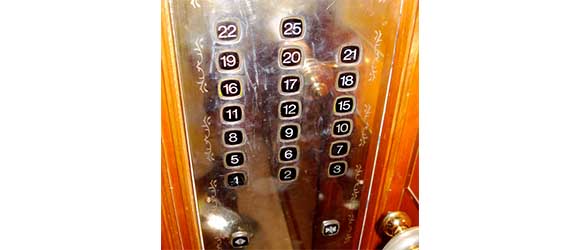Let us begin with some gyaan - The word ‘taboo’ was coined in the 18th century by James Cook, a British explorer. On his visit to a home in Tonga, Captain Cook asked the hosts (and cooks) of his meal, to sit beside him and dig into the scrumptiousness. They politely refused, saying it was ‘tabu’. Cook was later enlightened that the term meant ‘forbidden’, and thus, the word ‘taboo’ entered the English language.
So, we are all aware of the various taboos in our own cultures. But how much do we know about the rest of the world? Let us take a look at some ‘taboos’ from around the world.
#1 - Italy: No Extra Cheese

Italy is popular as the land of art and, cheese! This is a place where cheese is life.
It is always said, ‘when in Rome, do as the Romans do’. That means that while you are visiting another place, follow the customs of that place. When in Italy, enjoying a meal at a restaurant, you do not get to request for some extra cheese on your pizza.
There, neither is the cheese free, nor would the request be appreciated. Asking for extra cheese is seen as a sign that the chef did not prepare the dish well. And in Italy, the chef is always right. Always.
#2 - China: Number ‘4’ is a bad omen.

(Image source: https://bit.ly/1VIgPLJ)
We must have all faced this situation where the pronunciation of a word that conveys the best of intentions, is similar to that of a word with an extremely unfortunate meaning. If we are new learners of a language which has such occurrences, we could land in some deep trouble. But, ever heard of such linguistic challenges deciding the fate of an entire nation? Welcome to China!
In China. One cannot see the number ‘4’ anywhere! According to the Chinese, the number is a bad omen, as the pronunciation of the word for ‘4’ is similar to that of the word for ‘death’. This means that hotels do not have floors numbered 4, 14, 24, 40, 41, 42 and so on!
#3 - Russia: Even numbers of flowers are associated with funerals

If you are in Russia and plan to present flowers to your host or a friend native to Russia, make sure to count the number of flowers you will be presenting them with. This is because an even number of them will not be appreciated.
In Russia, even numbers of flowers are associated with funerals and occasions when one is grieving. During happy gatherings, only an uneven number of flowers, preferably more than 5, is given. It is also advised to stay clear of yellow blossoms during merry occasions, as even this is associated with funerals.
#4 - France: Baguette cannot be placed upside down

The world knows French culture, along with the British, as a key influence on etiquette. In France, the baguette, a thin, long bread, is extremely important! Placing it upside down is not accepted in this country!
Legend has it that this came to be in the Middle Ages, when bakers would set aside a baguette for the busy King’s executioners, by placing them inverted. Customers would get the cue and leave it untouched, for the executioners to pick them up later, after finishing their job. In modern times, placing the bread upside down is expected to bring bad luck— as an invitation to poverty, hunger and the executioner himself into one’s home.
Another version of this legend states that bakers, unimpressed with visits from the executioners, would sell them their handpicked stalest loaves, by placing them upside down.
#5 - Malaysia: It is rude to touch a person’s head.

In Malaysia, touching the head of a person is considered to be rude and disrespectful.
People here believe that the head is where the soul lies. The head is also considered the most important and holy part of the body, and is not supposed to be touched. This is also true for the Buddha’s statue, and true for all Malays. All this, however, does not apply to close friends and family. But, seeking permission before touching the head or ruffling the hair is always better.

